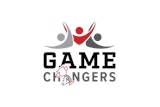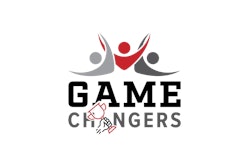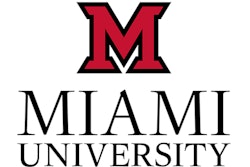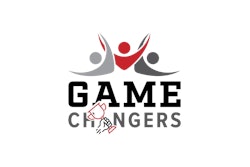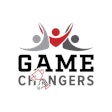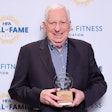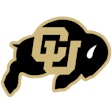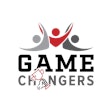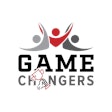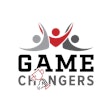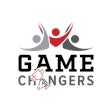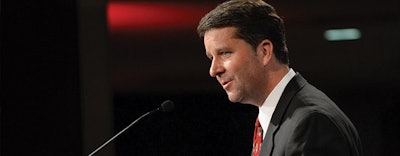
Scott Dolson was a nine-year-old Michigan City, Ind., native when Bob Knight's Indiana University Hoosiers capped an undefeated season with the 1976 National Championship. Back then, Dolson dreamed of being Quinn Buckner. Today, the newly named IU director of intercollegiate athletics considers Knight, whom he served as basketball student manager from 1984 to 1988, a mentor and Buckner a friend. The dream may have changed, but Dolson, who takes over July 1 after serving his alma mater 11 years as deputy athletic director and seven as director of its Varsity Club, characterizes his new position as nothing short of a dream job — as AB senior editor Paul Steinbach discovered during a chat March 26, the day Sweet Sixteen games would have begun under normal circumstances.
What's the mood in Indiana without basketball?
You don't know how much you miss something until it's gone, and so I think we'll appreciate it so much more when we get it back. But there's no question, whether you're out in the neighborhood walking your dog and you see someone, or we talk to our donors and supporters, everybody says the same thing, "Boy, do I miss the tournament." It's been a big-time void for sure. Huge.
At what point did athletics administration start to speak to you?
Early on, when I was a manager, I became intrigued and fascinated with how college athletics, and particularly big-time college athletics, operated. I remember just trying to figure out how the department operated financially. I didn't realize until I asked questions that the athletic department actually paid for scholarships, that they raise money for those scholarships. When I started in school, I thought, "Well, those kids on scholarship just went to school free." So those were things that I learned about — how TV money works and just all the different aspects of running a college athletic program — and I just got more and more interested as a student.
Which current trend in college sports stands out to you?
I would say that the personal development of the student-athlete has become so much broader and deeper. And I give Fred Glass, our outgoing athletic director, a ton of credit. I think that he had this unique way, and I hope that rubbed off on me working so closely with him. I think he had a crystal ball and was maybe ahead of the curve in seeing that, as we developed our Excellence Academy, both in terms of program and how we physically put that into a building to really provide the additional resources for the complete development of the student-athlete. Whether it's leadership and life skills and career development and mental health support — all of the areas that are outside of athletics and academics but related to them — to me, that has been the real growth and a real positive for the whole development of college athletics.
You've been involved with IU facilities development for 11 years. What remains on your to-do list?
Particularly coming off the substantial growth in our facility footprint the past 11 years, I think what's important to me and to us is that we're looking ahead and developing a master plan for the next 10 to 15 years. What is the next list of projects? What do we need? Because I think in college athletics, one thing that's 100 percent true is that it's always moving, and if you're standing still, you're going to get behind. I think what's really important for us is to be on the cutting edge and be aggressive in terms of what is the next thing, whether it's looking at major projects or even just renovating some of the current infrastructure that we have.
What does a basketball manager do when he's working for Bob Knight?
Working for Coach Knight you learn incredible skills that will benefit you the rest of your life, in terms of working hard, time management, being responsible. And I think the managers under Coach Knight had a lot more responsibility than people probably think. It's helping with game preparation, filming, stats, travel arrangements, preparing scouting reports with the assistant coaches, helping with the physical part of practice. I remember my first practice, because I didn't know exactly what I was getting into, being on one end of the court during the opening warmups with a big blocking pad, and every time Uwe Blab would catch the ball, I would run into him with the blocking pad and help him play through contact.
What did you take away from those experiences?
The main thing under Coach Knight is that he ran a great system. Obviously, he was very organized and had high expectations, and managers had to have a lot of responsibility. And the stakes are high. You know, it's Indiana basketball. It was a serious job, and it was something that I learned at a young age and I'm forever grateful for that opportunity to learn how to work and work a plan. There are things that I was a part of by watching and observing and being there that transcend time in terms of what are the qualities of a winning program. Whether it's 1987 or 2020, there are things that go into your philosophy of building a program and being consistent and having a plan and working that plan and leadership within the team and how that's all developed. Although a lot of time has passed, I think there are qualities today that are important in any sport to building a very successful program. And there's no question in my mind that things that I learned and observed then are still with me today that formulate how I lead and how I want our programs to develop our young people.
Can you share any one thing about Bob Knight that people might not know about him?
Yes. The thing that really surprised me about him, but at the same time really impressed me, is he would bring in different people to practice — former coaches, like Pete Newell would be a great example — who would observe practice and take notes and give Coach Knight their opinion on what they felt they saw. When I came to school in the fall of 1984, he had just coached the Olympic team to the gold medal, and the assumption is he's the number-one coach in the country, people are coming to ask him questions, he knows it all. I watched him ask questions of those coaches, and I remember consciously thinking, "Okay, that's a key part of leadership, listening to other people." You'd think Coach Knight wouldn't be someone who listened to anyone else. So, for me, as a leader, I know there's going to be lots of people I rely on to give me good advice, and I'll listen to what they say. A lot of that was developed because of the way I watched Coach Knight do it, and he was the best at his profession.
Do you remember where you were and how you felt when you got word that Indiana University had fired Bob Knight?
I was at home, because it was on a Sunday, I believe, and I just remember getting phone calls because I worked in the department. I knew there was a chance of that just because of the events that occurred starting that Friday. I remember feeling just a sense of letdown that unfortunately it got to that point. Like most IU fans growing up, even though I was an employee, as well, I just felt down. I wished it hadn't gotten to that point. I understood it, but wished it hadn't gotten to that point.
Can you describe the scene when Knight made his return to Assembly Hall this season after 20 years?
Absolutely. We had a small committee that worked on that project, and I was on that committee. I was involved and worked very closely with Quinn Buckner and Randy Wittman, former players who really get all the credit in a lot of ways for making that happen, along with a couple of other of Coach Knight's closest friends — our longtime doctor Larry Rink and Bob Hammel, a longtime sports writer who was a great friend of Coach Knight. It was really an honor for me to just be a part of that. And the day that Coach came back was one of the better days — not just for Coach Knight, but it was almost more because of what I could see it meant to the former players, first of all. That was huge, and I can't even put into words what a relief as much as a joy it was to see the former players and their reaction when Coach came back. And then also just for our fans. It was just such an emotional thing for the whole program. Hard to put into words how neat that was.
How many times have you seen the movie "Hoosiers"?
Well, I'll say this. Angelo Pizzo, who wrote the movie "Hoosiers," is a Bloomington native and an IU grad, and he's on our Varsity Club national board. He's a tremendous supporter. Great friend. I've seen the movie Hoosiers a lot. A lot. Anytime it's on, I can't turn it off. It's really neat, and having Angelo involved in our program is really a neat thing for us, as well. He's such a great person and such a huge supporter of IU athletics, which means a lot, too. So that movie means a lot for multiple reasons.
This article originally appeared in the May 2020 issue of Athletic Business with the title "From student manager to AD: Scott Dolson's Indiana journey." Athletic Business is a free magazine for professionals in the athletic, fitness and recreation industry. Click here to subscribe.














